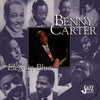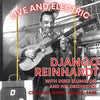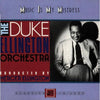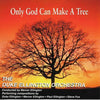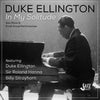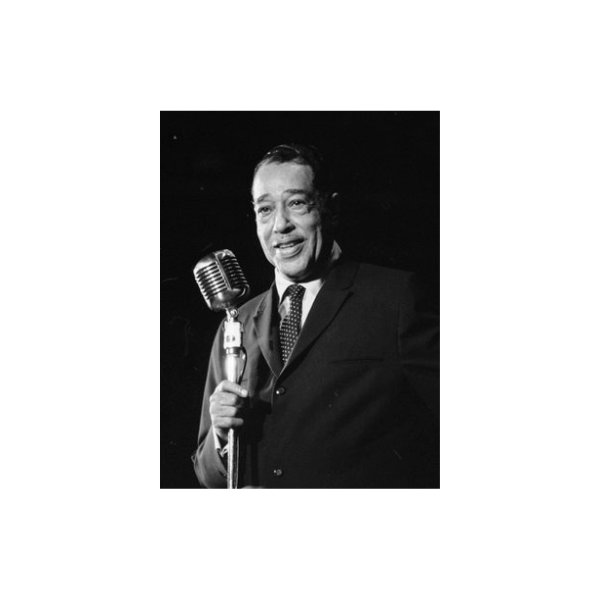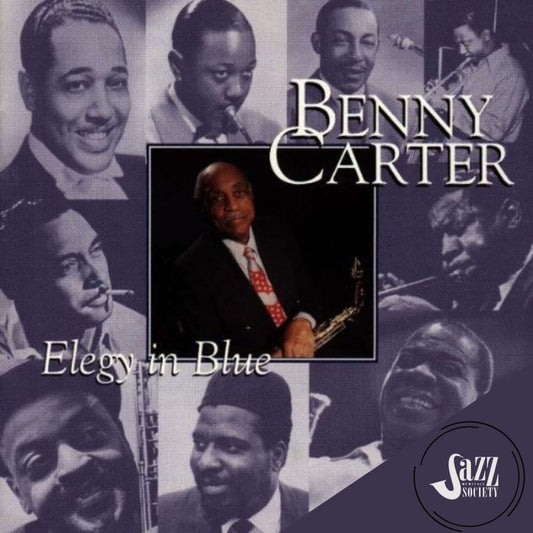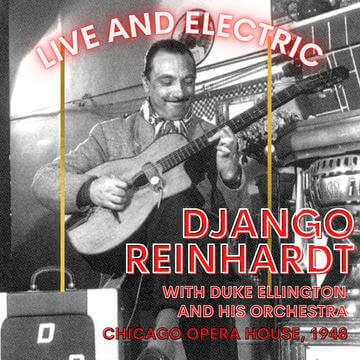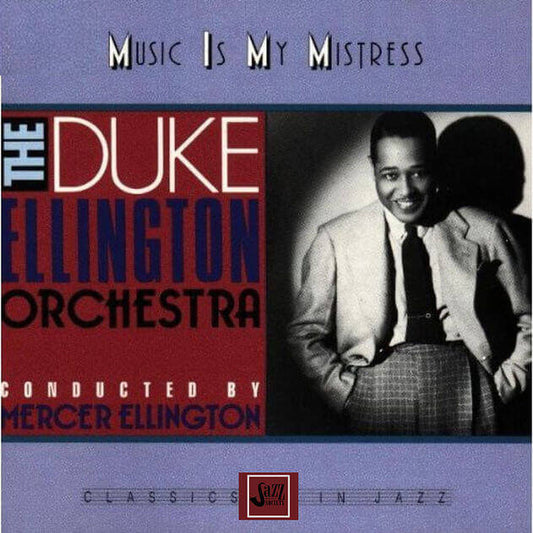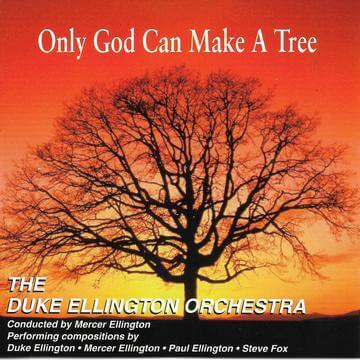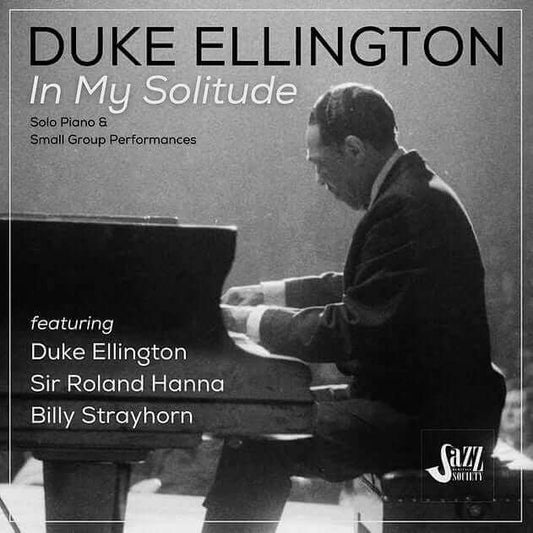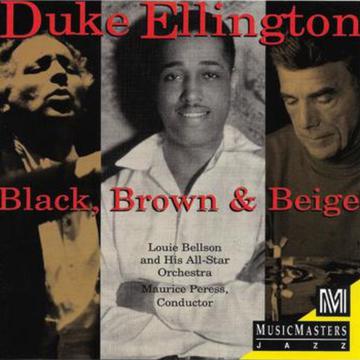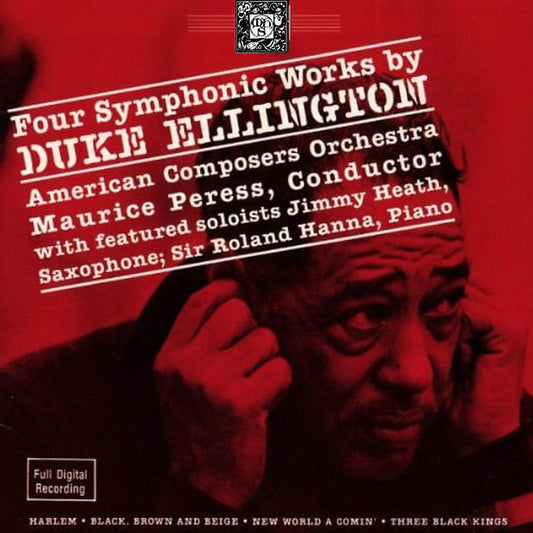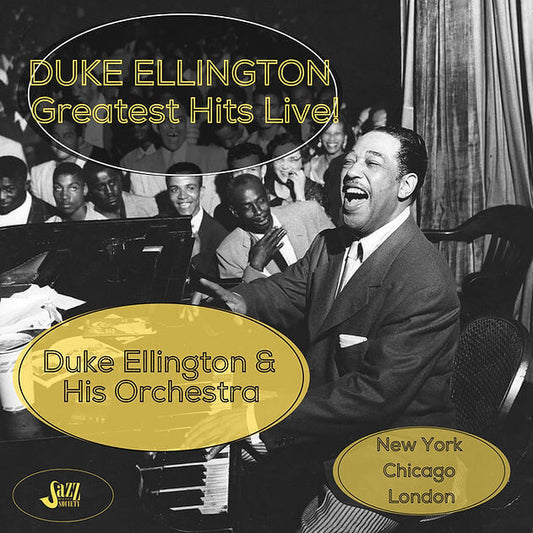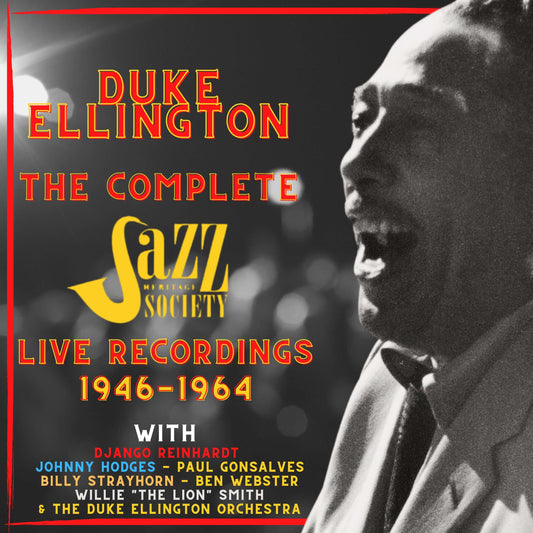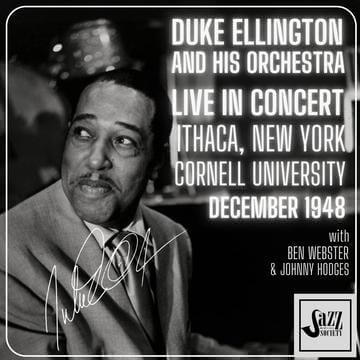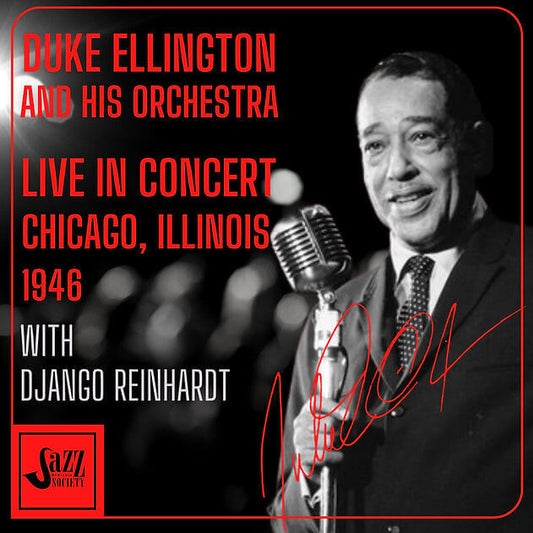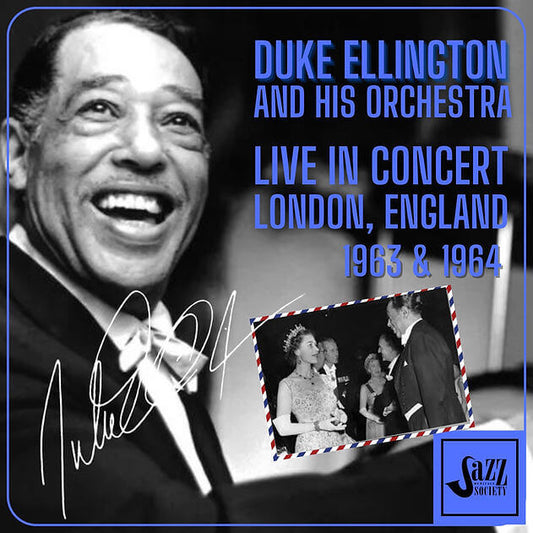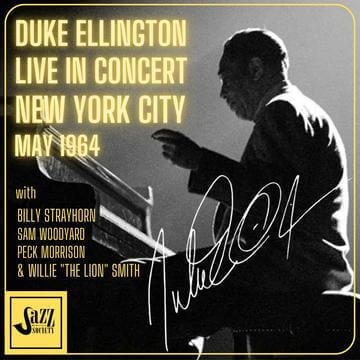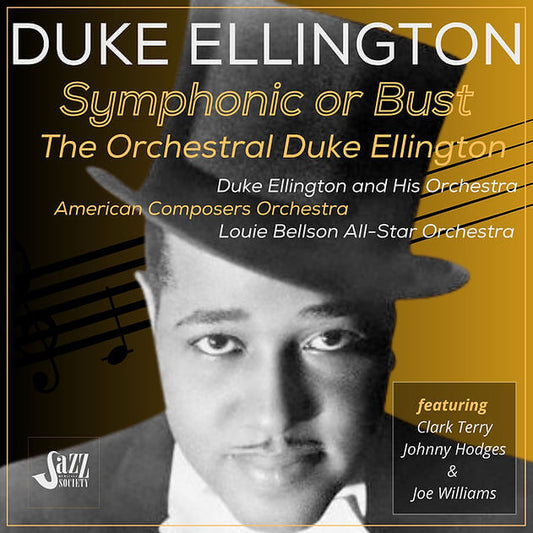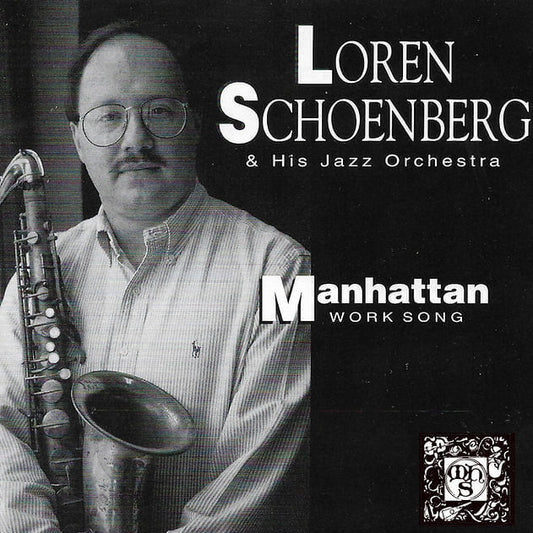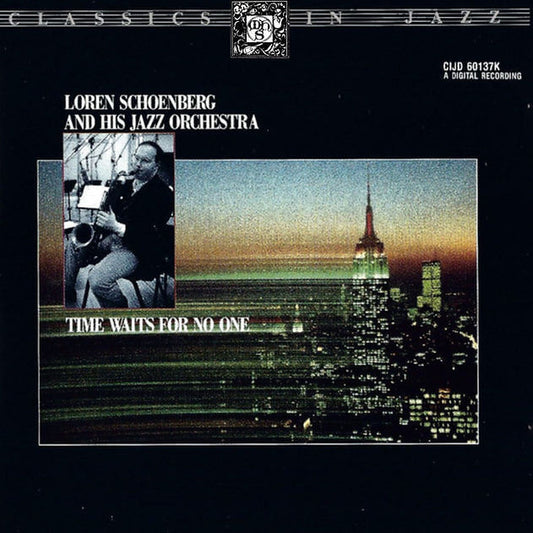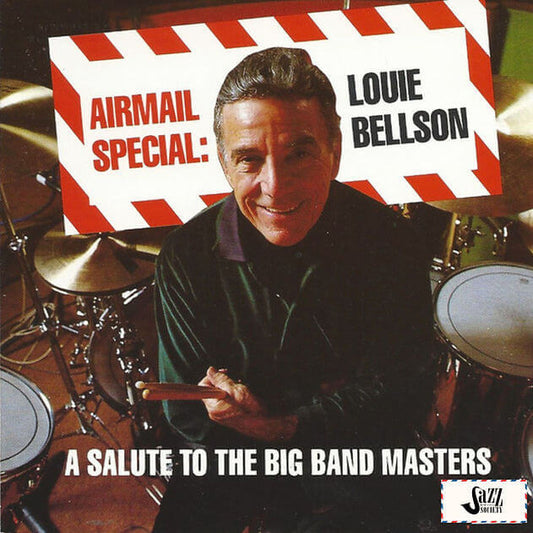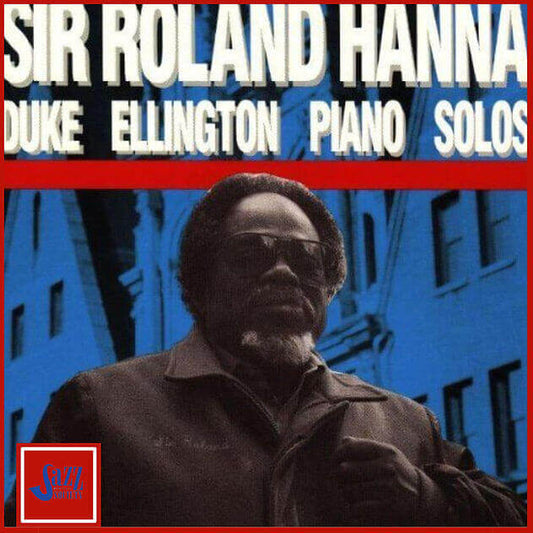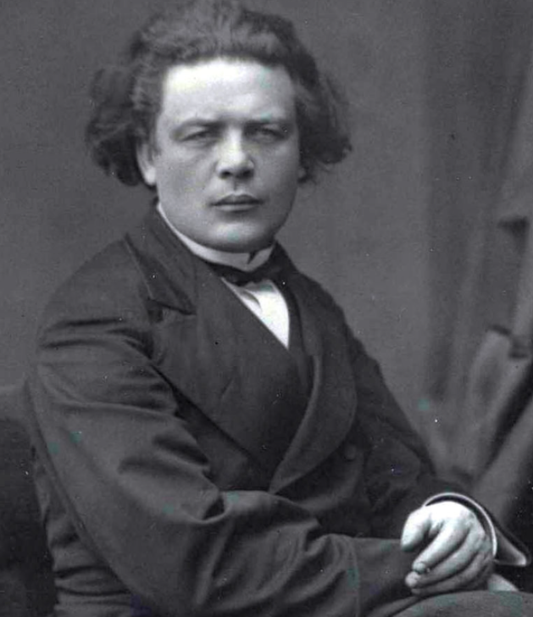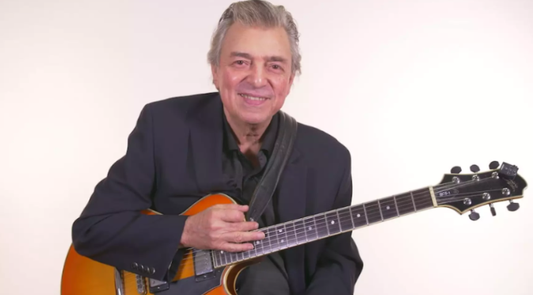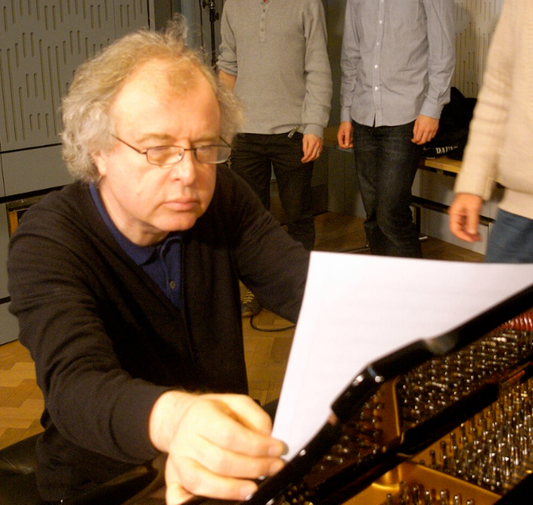Collection: DUKE ELLINGTON (1899 – 1974)
Edward Kennedy "Duke" Ellington (April 29, 1899 – May 24, 1974) was a monumental figure in the history of jazz and American music overall. More than just a pianist, he was a prolific composer, an innovative arranger, and the charismatic leader of one of the most distinctive and long-lasting ensembles in orchestral history. Ellington elevated jazz from dance hall entertainment to a sophisticated art form, creating a vast and unique body of work that defied easy categorization, leading him to famously describe his music as simply "American Music," existing "beyond category."
Born and raised in Washington, D.C., Ellington grew up in a middle-class African American family that encouraged his artistic inclinations. He began piano lessons as a child, initially showing more interest in baseball, but exposure to ragtime pianists sparked a deeper dedication. Nicknamed "Duke" by childhood friends for his elegant manners and dapper style, he began playing professionally in D.C. clubs during his teens, absorbing blues and jazz influences. He formed his first group, The Duke's Serenaders (later The Washingtonians), building a local reputation.
Seeking greater opportunities, Ellington and his core band members moved to New York City in 1923. After some initial struggles, their fortunes changed dramatically in 1927 when they secured a residency at the prestigious Cotton Club in Harlem. This engagement proved crucial. Broadcasting regularly on national radio from the club, the Duke Ellington Orchestra gained widespread fame. The demands of the Cotton Club's exotic floor shows pushed Ellington to experiment compositionally, developing what became known as the "jungle style," characterized by muted brass growls, complex harmonies, and evocative moods. During this period, he penned early classics like "East St. Louis Toodle-Oo," "Black and Tan Fantasy," and the timeless "Mood Indigo."
Ellington viewed his orchestra not just as a collection of players but as his primary instrument. He composed specifically for the unique talents and timbres of his long-serving musicians, such as saxophonists Johnny Hodges and Harry Carney, trumpeters Cootie Williams and Bubber Miley, and trombonist Joe "Tricky Sam" Nanton. This personalized approach resulted in an orchestral sound unlike any other – rich, complex, and instantly recognizable. His collaboration with composer, arranger, and pianist Billy Strayhorn, beginning in 1938, was particularly fruitful, yielding masterpieces like "Take the 'A' Train" (which became the orchestra's theme song), "Chelsea Bridge," and "Lush Life."
Throughout the 1930s and 1940s, considered by many his golden era, Ellington produced an astonishing stream of enduring hits and sophisticated compositions, including "It Don't Mean a Thing (If It Ain't Got That Swing)," "Sophisticated Lady," "In a Sentimental Mood," "Ko-Ko," and "Concerto for Cootie." He also began exploring extended compositional forms beyond the standard three-minute record length, creating ambitious multi-movement suites like Black, Brown and Beige (premiered at Carnegie Hall in 1943), Such Sweet Thunder, The Far East Suite, and The New Orleans Suite, which showcased his evolving harmonic language and structural ingenuity.
Ellington and his orchestra toured relentlessly, both domestically and internationally, acting as unofficial cultural ambassadors for the United States. Despite changing musical trends (swing giving way to bebop, rock and roll), Ellington kept his orchestra together through sheer force of will and continuous innovation, adapting while retaining his core identity. His triumphant performance at the 1956 Newport Jazz Festival revitalized his career and demonstrated the enduring power of his music.
In his later years, Ellington focused increasingly on composing sacred music, presenting three groundbreaking Sacred Concerts (1965, 1968, 1973) in cathedrals around the world. These works blended jazz, gospel, blues, and classical elements, reflecting his deep spiritual beliefs.
Duke Ellington received numerous honors, including the Presidential Medal of Freedom (1969) and a posthumous Pulitzer Prize Special Citation for music (1999). He composed thousands of works, leaving an indelible mark on 20th-century music. His legacy lies not only in his unforgettable melodies and the unique sound of his orchestra but in his elevation of jazz composition and his unwavering dedication to expressing the breadth of the American experience through music.

